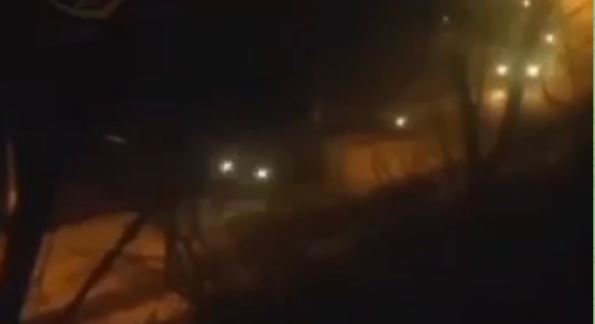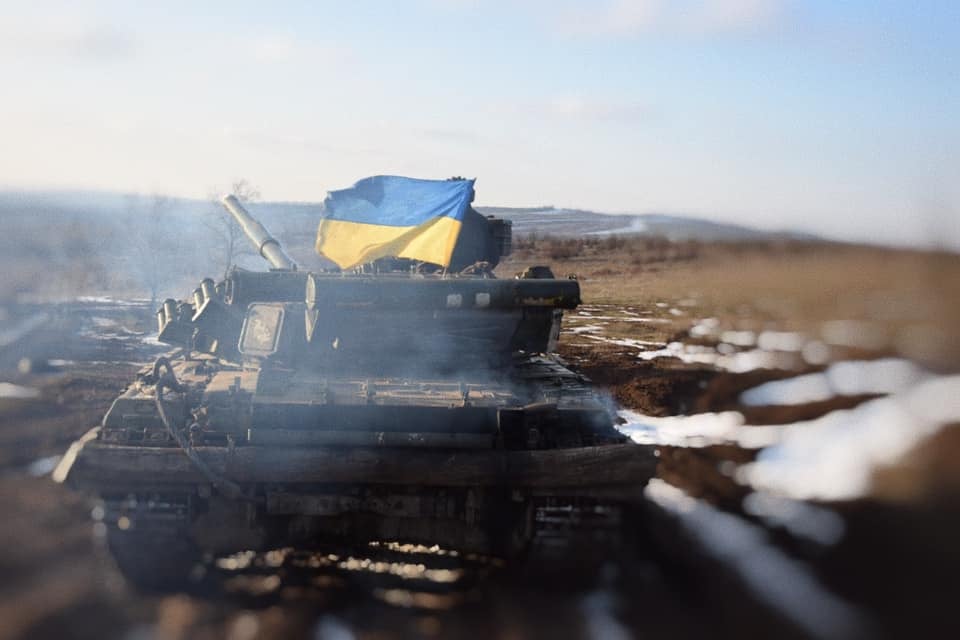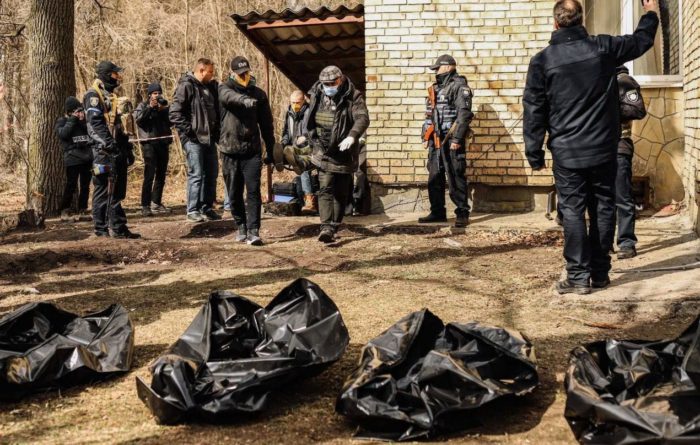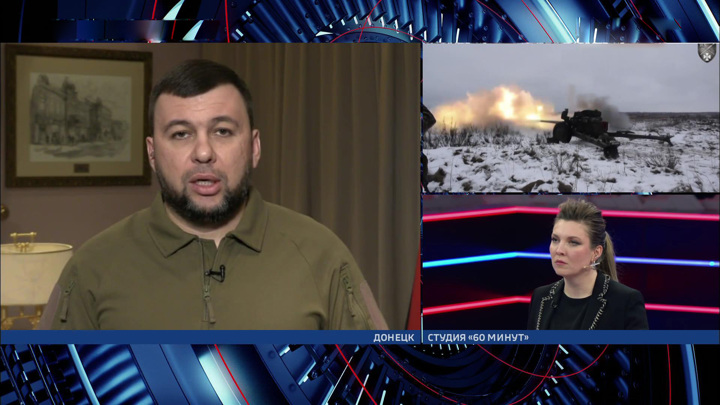The media has recently been full of warnings of Russia's imminent invasion of Ukraine. The head of the Norwegian Intelligence Service claims that Russia has everything it needs for a full invasion of Ukraine, and the US has warned that a full invasion could start "any day." Many countries have asked their citizens to leave Ukraine.
The threat assessment must be seen in the context of Russia invading Ukraine in 2014 already. In addition to occupying Crimea and large parts of the Donbas, Russia currently also controls large parts of Ukraine's maritime economic zones. It controls as much as 19.6% of Ukraine's territory and sea areas. The war many fears has been going on for almost 8 years already.
However, the occupation and the ongoing military action are just one of many elements of a much more extensive Russian hybrid war. This is a "parallel and synchronized use of both military and non-military means in an attempt to destabilize countries from within".
The battlespace of the Hybrid War occurs in the mind. The battlefield has moved from the physical domain to the cognitive sphere. It aims to destabilize, create fear, and promote passivity. The hybrid war confuses and manipulates.
Through disinformation, lies, cyber-attacks, extortion, provocations, fabrications, military escalation, and more, a "virtual reality" is created that motivates countries to make the political decisions Russia wants.
The danger of a major war in Europe is probably another example of such a "virtual reality."
Why it is unlikely that Russia will invade and occupy Ukraine
The present hybrid war strategy was chosen for several reasons, many of which make a full-scale invasion and an occupation of Ukraine highly unlikely. Not because it cannot be done – because it can – but because it’s not needed, it is counter-productive, costly, and extremely risky.
1. Russia does not have sufficient forces to occupy Ukraine
As of today, 148,000 soldiers are marching along Ukraine's border. In order to control the country over time, however, this number must be multiplied by three. An occupation will require around 400,000-500,000 soldiers, because an occupation requires a cycle in which the forces:
- operate in Ukraine,
- rest
- train for the next operational deployment.
2. An occupation of Ukraine entails extreme risks
37.3% of the Ukrainian population will offer armed resistance. History shows that the will to resist is very real. If Russia becomes clogged down by the more than 500,000 Ukrainian partisans fighting in their rear, its Armed Forces will become committed to the occupation of Ukraine. This will bind large parts of the Russian Armed Forces to Ukraine at the expense of security in other regions.
3. A full-scale war will be extremely counterproductive
Nations do not wage war for war’s sake but in pursuance of policy in which a better state of peace is the main objective. Russian control of Ukraine is crucial to its ambition for great power status. The country faces major demographic challenges that in the long run will affect both the Russian economy and its ability to project military power globally.
In addition to major material damages, conservative estimates indicate that an invasion could result in 25,000-50,000 civilian casualties, 5,000-25,000 Ukrainian and 3-10,000 Russian soldiers killed in action. This will come on top of the almost 15,000 who have already been killed and 30,000-33,000 who have been injured during the almost 8-year-long war.
4. The West will become involved
For 8 years, Russia has done its utmost to prevent the West from becoming actively involved in Ukraine. However, a full-scale invasion will have far-reaching consequences for Europe. Even the rumors of war affect the financial market. War will trigger extensive sanctions and subsequent retaliation with major economic consequences. It will also trigger a refugee crisis with more than 4 million refugees.
5. Russia will lose the ability to influence the West
Russian hybrid war embraces all of Europe, the United States, and Canada. A conventional war will mean that Russia will lose its current ability to influence the West through the use of diplomatic rhetoric, disinformation, threats, trade, corruption, manipulation, and more.
6. Russia will not be able to legitimize a full-scale invasion
Lately, several Russian intellectuals and two retired generals have expressed strong vocal criticism towards President Putin's attempts to describe NATO as a threat and warned of the catastrophic consequences of war.
Russian officers shun policy of provoking war against Ukraine, urge Putin to resign
"Our point is extremely simple: Russia does not need a war with Ukraine and the West. Nobody threatens us, nobody attacks us. A policy based on promoting the idea of such a war is immoral, irresponsible, and criminal, and cannot be carried out on behalf of the peoples of Russia." write the intellectuals.
But an escalation in the nearest time is likely
An analysis of the Ukrainian think-tank Center for Defense Strategies also considers an invasion unlikely. This is in line with the assessment of Ukrainian authorities.
Full-scale invasion of Ukraine still unlikely, yet local escalation probable: analysis of scenarios
Nevertheless, we must expect an escalation of the conflict in the time to come. I consider a "humanitarian intervention" in Donbas likely. Russia has already conducted several operations based on "Responsibility to Protect" (R2P):
- In 2008, Russia argued that it was “necessary to end what it termed a genocide against South Ossetians and to protect Russian civilians (many South Ossetians had received Russian passports).”
- In 2014, Putin claimed that the annexation of Crimea was a response to “real threats” to Russian-speaking minorities in the region.
Russian “passportification” started there in 2019 already, turning Ukrainians into “Russian citizens.” Russia has not only caused a dire and deteriorating humanitarian situation but also conducted an intensive disinformation operation depicting Ukraine as being responsible for the atrocities.
It has simultaneously created the national legal framework, developed the key strategic documents, and built the military capacity needed to conduct a “humanitarian” intervention.
Russia has even argued for an international peacekeeping mission to Donbas, on terms unacceptable for both Ukraine and the West (as a possible justification why Russia had to act unilaterally).
Such an operation only needs a "trigger." Intelligence sources indicate that Russia may already have special forces in place in Donbas to carry out an operation designed to look like a Ukrainian attack on Russian citizens.
A “humanitarian intervention,” though limited in scope, might prove to be a “game-changing” crisis. The presence of a "peacekeeping force" supported by a no-fly zone and maritime embargo might prove devastating for Ukraine.
Russia would (according to its narrative) not be “undermining Ukraine’s territorial integrity” per se but simply acting in the spirit of R2P. It would of course be a lie, but not a bigger lie than the international community has already swallowed for years.
The presence of regular Russian forces in Donbas will make any (unlikely) military intervention by Ukraine’s international partners even more unlikely. Ukraine's Armed Forces will be pushed back and “punished.”
And since it will be difficult to sanction Russia for its R2P operation, it might very well demonstrate our impotence in the face of open Russian aggression, leaving NATO’s credibility in tatters.
The present fear of a full-scale invasion is a good example of how diplomatic ultimatums, belligerent rhetoric, disinformation backed by a credible threat contributes to political pressure, fear, and inaction.
[bctt tweet="And since it will be difficult to sanction Russia for a "humanitarian" operation, it might very well demonstrate our impotence in the face of open Russian aggression, leaving NATO’s credibility in tatters" username="EuromaidanPress"]
What Russia has won already
Russia has already achieved a lot.
Russia’s initiatives and proposals to the United States and NATO regarding the provision of long-term legally binding security guarantees for Russia are being discussed. While it is unlikely to get the concessions it demands, Russian great power status has been “acknowledged.”
[bctt tweet="The present fear of a full-scale invasion is a good example of how diplomatic ultimatums, belligerent rhetoric, disinformation backed by a credible threat contributes to political pressure, fear, and inaction" username="EuromaidanPress"]
It is getting the attention it demands.
NATO, US deliver written rejections to Russia’s demands for “security guarantees”
Having consistently declared that it does not intend to invade Ukraine (and not acknowledging the fact that it already has done just that eight years ago), de-escalating and reducing its military presence along the Ukrainian border will for once strengthen its credibility.
Russia will also try to claim an information victory given (the very real) US threat assessments and warnings.
The transatlantic unity has been tested: Russia has demonstrated a lack of NATO unity.
Since a "humanitarian intervention" will raise the question of new sanctions, and doubts have already been raised as to whether the member states will be able to agree on sanctions for "minor incursions," the alliance's cohesion will again be put to the test.
Russia has also established which nations are NATO's weak link.
Most importantly, Russia might have succeeded in putting Ukrainian NATO membership on hold for the foreseeable future.
A full-scale invasion or a “shock and awe” assault is unlikely. Unlikely, but not completely off the table as war, unfortunately, is not only about reason.
Whatever happens in the next couple of days, the only thing certain is that Russia’s more than eight years of aggressions against Ukraine will continue.
The threat will persist until the West helps Ukraine to establish a proper deterrent, rendering Russia’s military options redundant.
[bctt tweet="Whatever happens next, the only thing certain is that Russia’s 8 years of aggressions against Ukraine will continue until the West helps Ukraine to establish a proper deterrent, rendering Russia’s military options redundant" username="EuromaidanPress"]
Related:
- What if? Hybrid War and consequences for Europe (part 1)
- Zelenskyy is solving the wrong war
- The next phase of the Hybrid War, or why Russia is unlikely to invade Ukraine
- The possible invasion is not the real issue. Russia’s new wave of destabilization needs a three-dimensional approach
- Thousands march in Kyiv to warn Putin he will fail in Ukraine
- How weapons from allies would help Ukraine fend off Russia’s invasion
- Military buildup registered at nearly half of Russian bases at Ukraine’s border in late 2021, satellite image project shows
- Ukraine now ready to fight Russia, “unlike 2014,” top brass says
- “Nobody asked us” – Russian intellectuals rebuke Putin’s policy of war against Ukraine
- Russian officers shun policy of provoking war against Ukraine, urge Putin to resign
- NATO, US deliver written rejections to Russia’s demands for “security guarantees”





